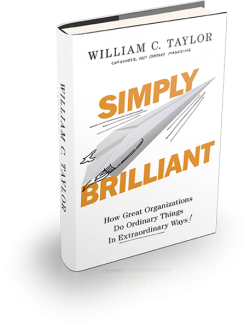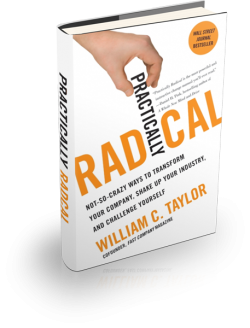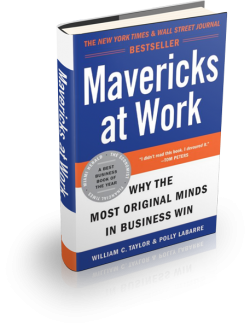I approach a book by New York Times columnist Thomas Freidman with a mixture of wariness and anticipation. Wariness, because Friedman’s books tend to go on for many pages longer than they need to, and many of those pages contain his trademark blend of Davos Man self-congratulation and cheesy metaphors. But I still have a sense of anticipation, because in every one of Freidman’s books, there are a handful of insights that are so clear, so sharp, so flat-out right that they frame how you look at the world going forward.
That Used to Be Us, Friedman’s new book (written with Johns Hopkins professor Michael Mandelbaum), has at least one such observation—a principle so clearly true, and so crisply expressed, that it should become a mantra of sorts for leaders everywhere who want to build something great and do something important. Chapter Seven of the book is called “Average Is Over,” and it’s a rallying cry that captures what it takes to stand out from the crowd in a world that keeps getting more crowded.
“In a hyper-connected world where so many talented on-Americans and smart machines that can do above-average work are now easily available to virtually every employer, what was ‘average’ work ten years ago is below average today, and will be further below average ten years from now,” Friedman and Mandelbaum write. “As a result, everyone needs to raise his or her game just to stay in place, let alone get ahead…” In an environment where “average is over,” they go on, everybody has to find their “extra”—their unique talent, skill, contribution, or commitment that separates them from the pack and lets them do something special.
Friedman and Mandelbaum are policy wonks, so they explore the notion that “average is over” mainly as it applies to countries and societies, and how we educate kids, train workers, and make public investments. But their insight applies just as powerfully to companies and their leaders. The business world is overflowing with products and services and designs and marketing campaigns that are adequate. The real challenge—and the huge opportunity—is to turn something adequate into something amazing. It’s just not good enough to be pretty good at everything. The most successful companies, products, and brands have figured out how to become the most of something. That is, to find and embrace their “extra.”
Over at HBR, in my latest post, I explore why pretty good isn’t nearly good enough, and how you can offer an “extra” in just about any field. You can read the post here.



